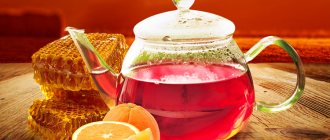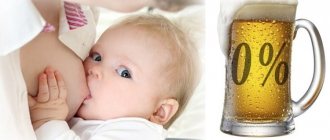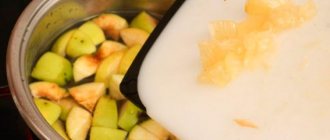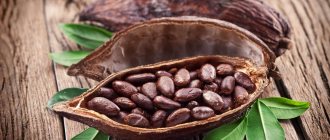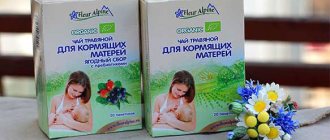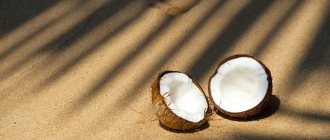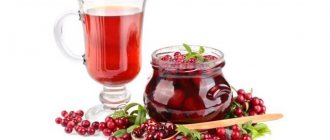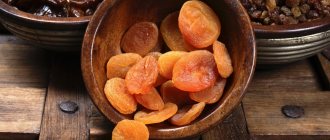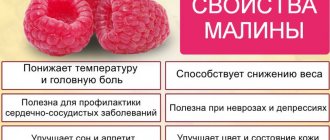Bread kvass is one of the traditional drinks of national Russian cuisine. It contains many useful substances; it perfectly quenches thirst and helps normalize ion exchange in the body's cells. For a healthy person, regular consumption of natural kvass will bring pleasure and benefit, but is this product acceptable in the diet of a nursing mother?
Tasty and healthy
Natural kvass has a tonic property and helps relieve fatigue. It contains:
- magnesium;
- iron;
- calcium;
- a whole range of useful amino acids;
- vitamins C, A,
- B vitamins.
As we can see, for a tired, sleep-deprived young mother, the effect can be beneficial. A well-infused bread dough made from high-quality ingredients, prepared without violating technology, will benefit a nursing mother, provided that she has no contraindications to dishes containing yeast and sugar. But the introduction of a drink to the menu should be approached with caution.
What could be the danger?
There are several reasons why nursing mothers refuse kvass. The popular opinion is that:
- the drink has a negative effect on the baby’s body because it contains a certain percentage of alcohol that passes into breast milk;
- kvass is a carbonated drink and therefore provokes increased gas formation in the baby and disruption of the functioning of the gastrointestinal tract;
- Kvass is usually consumed chilled, and such drinks negatively affect lactation.
Let's consider why the above arguments should not be taken as a reason to refuse a tasty natural drink:
The ethyl alcohol content in the product does not exceed 1.2%, this is the result of fermentation - for the same reasons, alcohol is also contained in kefir, which is acceptable during breastfeeding. In addition, the human body always produces some amount of alcohol, even when completely avoiding products containing alcohol. Kvass is not classified as an alcoholic (low-alcohol) drink; in this aspect, it is harmless to the baby if not consumed in excessive quantities.
Despite the content of “bubbles”, the natural product cannot be fully classified as carbonated drinks - carbon dioxide in this case is formed naturally during fermentation. Among the drinks that are carbonated artificially is long-lasting bottled kvass; for a number of reasons it is not recommended to drink during lactation.
Breastfeeding mothers should not drink heavily chilled drinks, especially in hot weather, to avoid getting sick. But kvass can be drunk a little cool, not iced - this is quite safe.
So, natural kvass will be a pleasant and healthy addition to a woman’s diet during breastfeeding. Homemade product is allowed to be consumed. If we are talking about the purchased option, then preference should be given to barrel kvass, checking its quality and freshness - the seller must have a document for the product, its sales period is three days.
Bottled kvass bought in a supermarket is dangerous for the baby’s health. This is an artificially carbonated drink that contains flavorings and preservatives for long-term storage of the product. The bottled product can cause severe allergies in the baby, indigestion, and colic.
Arguments in favor of kvass
In reality, everything is a little different. First of all, let's look at the alcohol content. Indeed, in this drink, a small amount of ethyl alcohol is produced during the fermentation process. In good, “correct” kvass, its content is approximately 1%, which in no way gives reason to classify kvass not only as an alcoholic drink, but also as a low-alcohol drink.
Many nursing mothers exclude kvass from their diet because it also contains pleasantly tingling bubbles. However, natural homemade kvass is still not a carbonated drink; the carbon dioxide in it is the result of fermentation.
Of course, the same cannot be said about a drink with the same name bought in a supermarket. In a plastic bottle you will find a really not very healthy product containing synthetic dyes, flavors and preservatives. Such kvass will do more harm than good when breastfeeding.
Of course, it is better for pregnant women and nursing mothers to avoid such a drink, preferring homemade or barrel kvass. But, in this case, it is necessary to pay attention to compliance with sanitary standards and check the expiration date.
Another problem associated with kvass is that it is traditionally consumed chilled, which is not advisable during breastfeeding. However, it is not at all necessary to drink kvass ice-cold.
One glass of cool homemade kvass during the day can be quite safe for your baby.
However, when expanding your diet, monitor your child’s reaction, since children of the same age react differently to certain foods.
How to introduce kvass into your diet
Kvass is contraindicated for women suffering from chronic or acute gastrointestinal diseases. It is also important to pay attention to the baby’s health status - if he often has a tummy ache, increased gas production, or an allergic reaction to any foods has not yet passed, it is not advisable to experiment with kvass.
Like any new product, kvass is gradually added to mom’s menu. For the first time, it is enough to try no more than a third of a glass of the drink in the first half of the day. Watch your child's reaction carefully. If within two days the baby does not show signs of an allergic reaction or tummy pain, next time you can increase the volume to half a glass or a little more.
It is recommended to drink no more than one or two glasses of cool homemade kvass with low sugar content per day. But it’s better not to rush to prepare okroshka - you need to make sure that the child’s gastrointestinal tract is adapted to each component of this dish.
A number of nutritionists recommend kvass as one of the drinks that promote lactation, but make a reservation: the product must be well tolerated by the mother and child. Official medicine has not confirmed the positive effect of this drink on milk production.
To increase lactation, traditional medicine advises preparing homemade kvass with the addition of black cumin. In addition to the standard ingredients, 2 teaspoons of dry seeds are added to 5 liters of water. This drink stimulates the function of the glands responsible for the production of breast milk.
A newborn baby, so small, but already a completely separate person, lies in a crib. He was born, and a woman no longer has to protect her belly; she can take small liberties. During pregnancy, I had to limit myself in everything, but now it’s acceptable to eat or drink something tasty, but is that so? Is it possible for a nursing mother to drink kvass, for example?
The baby only seems to be an independent person, in reality he is still very closely connected with the mother’s body; during breastfeeding, everything that the mother eats and drinks enters the baby’s body. What foods should you eat? Is kvass suitable for a nursing mother?
Is it possible to have kvass during gw
So, at the beginning of the week we fall asleep WITHOUT breastfeeding for a daytime nap. True, he has been a little capricious for the last 3 days. I put him in his crib, and he starts to sour his lip and cry resentfully. He lies there for about 10 minutes, offended. But he doesn’t yell or jump up. I'm sitting next to you on my bed. As a result, he drinks the compote and falls asleep. And we also have an early awakening, where he is also very offended that I don’t give breastfeeding, fidgets for almost half an hour, sobs, from time to time he may cry a little, pushes away my hands and the bottle with resentment, but in the end he falls asleep before 9 o’clock. There is still feeding left. for the night.
Monday. 05.05.14.
She put him in the crib, sore his lip and began to whine a little, pushing away the bottle of compote. I sat next to him on my bed and tried not to look at him. I was sitting on the phone. Vanyasha calmed down, took the bottle, drank all the compote, bit the nipple of the bottle and fell asleep) It all took about 10 minutes. I slept for 1.40.
Tuesday. 05/06/14.
At lunch, I followed the routine we had already established: spread the bed, changed clothes, laid him down, gave him a compote, a book and a toy, and sat down not far from him, so that he knew that I was nearby. I drank compote and fell asleep in one fell swoop. I slept for 3 hours and 10 minutes!!!!!!!!!!!! This is generally rare for us! A! And further! This week it suddenly stopped whining in the morning))) I just move him to my place, he lies there for a while and falls asleep! Hooray!
Wednesday. 05/07/14.
In the morning, at about 7 o’clock, he migrated to us and calmly continued to sleep! At lunchtime I fell asleep without any problems and quickly, although I wet myself a lot and woke up an hour later (((At night we still fall asleep with a tit))
Thursday. 05/08/14.
Something woke up Vanyashka this night at 00:40. It's been a while since we woke up at night. Since I really wanted to sleep, I didn’t bother, but simply moved my son to us. They immediately passed out. Woke up at the beginning of nine. He kissed my husband and me, we continued to “sleep”, and he got out of bed, took out his car and started driving it)) Just super!! But at lunch it wasn’t all good((((Vanechka, as usual, fell asleep quickly after drinking compote and looking at the pictures in the book, but the devil pulled me to pull this book out of his hands. He woke up and howled((((Then he calmed down and it took me half an hour sit next to me. It was worth moving away, or (((Then I fell asleep anyway. I slept for 2 hours)
Friday. 05/09/14.
At night, at one o'clock, Sasha woke up to go to the toilet and went to Vanka for some fig. Either cover it up or something. He woke up and had to be taken in. I wanted to kill him (Sasha) a little)) At lunch there were no problems. I drank compote, lay down with a book and fell asleep)) Quickly) In the evening I spontaneously decided to try to lay her down without a tit. She put it in and gave him a bottle of kefir, but he tried it and didn’t drink it. Realizing that there would be no titi, he curled his lip. But he didn’t cry or whimper. I gave him a phone with a cartoon. I lay down for about 15 minutes and fell asleep! Damn, I’m already a little sad... Is this really the end of our GW... Eh...
Saturday. 05/10/14.
In the morning there are no problems at all! He doesn’t even remember about titya! He wakes up cheerful and happy, kisses! At lunchtime I watched a cartoon and fell asleep. But he didn’t sleep for long((about 1.5 hours. In recent days he has been waking up consistently at night((And I liked it so much that he slept in his crib until the early morning! Now I have to take him to my place. But at least he passes out right away and that’s okay! In the evening again they fell asleep without breastfeeding)) He cried a little when he put him down and went to get some tea. But dad sat down next to him, stroked him on the head and Vanechka quickly fell asleep.
In general, now we also harness dad to bed))
Sunday. 05/11/14
. Woke up again at night... Well, so and so... Today I decided to arrange a photo shoot of the last breastfeeding. We took a few photos. And by one o’clock, I see, it’s starting to simmer at the chest. I made the bed, well, I think I’ll have to breastfeed again now, since I lured him away. I laid it down, I gave him the breast, and he lay there and looked at me! I immediately cleaned it up, sat next to him for about 5 minutes and he fell asleep! Apparently, he already realized that he no longer needs a tit...
Traditional Russian kvass
The fragrant and tasty drink has been known for thousands of years. There is a theory that they learned to make it at the same time as baking bread. Real classic kvass is a healthy, even healing drink. Good kvass relieves fatigue, adds strength, and quenches thirst. It's nice to drink a glass of cold, slightly sweet drink on a hot day!
It is prepared from the same products as beer, but using a different technology. Brewing beer is aimed at ensuring the process of alcoholic fermentation, and when preparing kvass, they try, on the contrary, to slow down the alcoholic fermentation so that most of the sugar turns into lactic acid. READ ALSO: Is it possible to drink non-alcoholic beer while breastfeeding?
Kvass during breastfeeding
Kvass is a Slavic drink; its history goes back thousands of years, as it is mentioned even in historical chronicles.
Of course, over such a long period the cooking recipe has changed and improved. Nowadays the main recipe for cooking is bread of various types, but previously they also added rowan berries, beets, cloudberries, currants, and lingonberries. This drink belongs to the low-alcohol group, which is why when breastfeeding, the use of kvass should be limited - as a rule, the norm does not exceed 1 glass of drink per day. The same norm has been established by medicine for the consumption of kvass by a young mother.
Many people note that kvass is a healthy drink, because it is able to overcome a lactation crisis, but official medicine cannot confirm this clinically.
Beneficial features
There are a huge variety of kvass recipes, but they all contain lactic acid bacteria in the starter, which have a beneficial effect on the gastrointestinal tract. Real live kvass has a bactericidal effect and is able to inhibit the development of dangerous infections such as typhoid fever, cholera and even anthrax. It contains many vitamins and microelements that a woman needs after childbirth. The drink strengthens tooth enamel, but during pregnancy it is often the teeth that suffer.
Kvass is also credited with other beneficial properties. It is believed that it cleanses blood vessels, normalizes the gastrointestinal tract, improves vision, and improves immunity. It lowers blood pressure, fights excess cholesterol and even helps you lose weight. So why not drink kvass?
Features of purchased drinks
Kvass, popular in our country, has changed a lot since the industry became interested in it. Prepared using classical technology, natural, bottled and processed for long-term storage, it loses living microorganisms, and with them most of its beneficial properties.
Carbonated kvass, which are sold in stores, are actually soft drinks containing a large amount of preservatives, flavors and dyes. They may taste good, but they have no health benefits.
How does kvass affect babies?
Mothers' concerns about drinking this drink are not unfounded. Despite the huge number of beneficial properties, it can also cause undesirable reactions during breastfeeding:
- kvass can cause allergies in the baby, accompanied by itching and rashes;
- It is customary to drink the drink cold, and when breastfeeding this is undesirable, as it can cause lactation disturbances;
- it contains a small amount of alcohol, which is contraindicated for the baby;
- the drink contains gases that can cause flatulence and abdominal pain.
The above arguments against kvass are not indisputable. When introducing any new product into her diet, mommy should do it gradually, starting with very small portions. While observing your baby, you should determine whether its use causes a negative reaction: does the tummy hurt, are there problems with stool, are there any rashes. The absence of a negative reaction indicates that the product can continue to be used. The rule also applies to kvass; of course, if the baby has an allergic reaction, the drink should be discarded.
It is absolutely not necessary to drink it cold, even in the heat. It is better to limit yourself to light cooling by throwing a few pieces of ice into the glass.
The alcohol content in kvass is very low, so this objection cannot be considered significant. The amount of alcohol in the drink is comparable to its natural content in the human body.
Kvass is a carbonated drink, and the gas can cause tummy pain in a baby. The likelihood of this is very high, because the drink not only contains gas, it is obtained as a result of fermentation, which continues in the stomach. The reaction to this phenomenon is individual: if the baby does not “complain,” this means that the mother’s drinking of the drink does not harm him.
Taking care and moderation, it is permissible to drink kvass during lactation. However, it should be remembered that this drink should not be abused. It is better for a nursing mother to limit herself to 1 glass per day.
Arguments against the use of kvass by nursing mothers
Arguing a sharply negative attitude towards this invigorating and refreshing drink, many nursing mothers and some pediatricians give the following arguments:
- Kvass, as a fermentation product, necessarily contains a small amount of alcohol, and this is harmful for the baby.
- This drink is carbonated, which means it can lead to bloating and colic in the baby.
- Kvass is usually consumed chilled, and when breastfeeding, this is also highly undesirable.
Which one to drink?
It is best to buy ready-made kvass on tap, as it does not undergo special treatment for long-term storage and retains all its beneficial properties. When buying such a drink, you need to pay attention to the sanitary conditions of the bottle and the freshness of the product. Under no circumstances should you consume store-bought bottled kvass during lactation or prepare it from concentrate sold in stores.
It is safest to prepare the drink at home; it will require time and effort, but the result will pay off, since a supply can be made immediately for a long period in advance. For those who do not want to bother with making malt sourdough at home, you can suggest making a drink from bread and yeast. Adding various berries, spices, and herbs to it will create different tastes. Traditionally in Rus', each housewife had her own technology for preparing this healthy drink. Why not try and come up with your own recipe?
Homemade kvass recipes
Kvass with cumin
Kvass with cumin helps improve lactation, so there is no better option for mothers. You need to take the following products:
- water – 5 liters;
- half a kilo loaf of rye bread;
- black cumin – 2 teaspoons;
- granulated sugar - glass;
- yeast – 10 g.
The bread must be sliced and dried in the oven until it becomes crackers, and then filled with water and left for 4 hours. The bread will swell and become soft. It is necessary to lightly stir it and add the remaining ingredients, leaving the resulting mass for another 12 hours. After this, the mass should be filtered through a cotton cloth and that’s it, the drink is ready for drinking.
Quick kvass with raisins
You can get different kvass if you add berries and aromatic herbs to the starter. Below is a recipe with raisins, for it you need to take:
- water – 10 liters;
- rye crackers – 1 kg;
- sugar – 750 g;
- raisins – 50 g;
- black currant leaf – 15 g;
- liquid brewer's yeast - 2-3 tablespoons;
- dried mint - 2 tablespoons.
The crackers must be filled with hot water and left for 12 hours. Brew mint and blackcurrant leaves with boiling water and leave to steep for 5 hours. Drain the mint infusion into a separate bowl, add the strained liquid from the crackers, sugar and yeast, and let stand for another 4 hours (see also: mint: preparing and taking the decoction while breastfeeding). After this, the drink can be bottled, adding 2-3 raisins to each bottle.
READ ALSO: Can a nursing mother eat crackers?
If you really want it
It’s not even a matter of a capricious “I want to.” After all, along with recommendations to drink more liquid, there immediately follows a ban on a significant part of the usual drinks.
If you really want something invigorating and refreshing, you can try making kvass yourself using the following recipe.
Homemade kvass recipe for nursing mothers
For 2½ liters of chilled boiled water you will need:
- 250g rye bread;
- 1 teaspoon cumin;
- 5 g yeast;
- ½ cup sugar.
The bread should be lightly browned in the oven and covered with water. After 4 hours, add the remaining ingredients and leave to ferment for 12 hours. The resulting drink can be filtered, cooled and used as needed.
Of course, you can use any other kvass recipe, the main thing is not to overuse even such a harmless homemade drink and carefully monitor your baby’s reaction.
Important to remember
- Kvass is a tasty and healthy drink, but it should not be abused. You need to introduce it into your diet very carefully. You shouldn't drink more than a glass a day.
- Store-bought kvass is not suitable for breastfeeding. It's best to make it at home.
- Kvass is allowed for children only after 3 years; before that it is better to drink compotes, fruit drinks, and children's juices.
- It is strictly contraindicated for those who suffer from gastritis or stomach ulcers; by the way, it is dangerous for men, as it contains a large amount of estrogens. Excessive consumption can lead to the formation of female-type fat deposits on the chest and hips.

